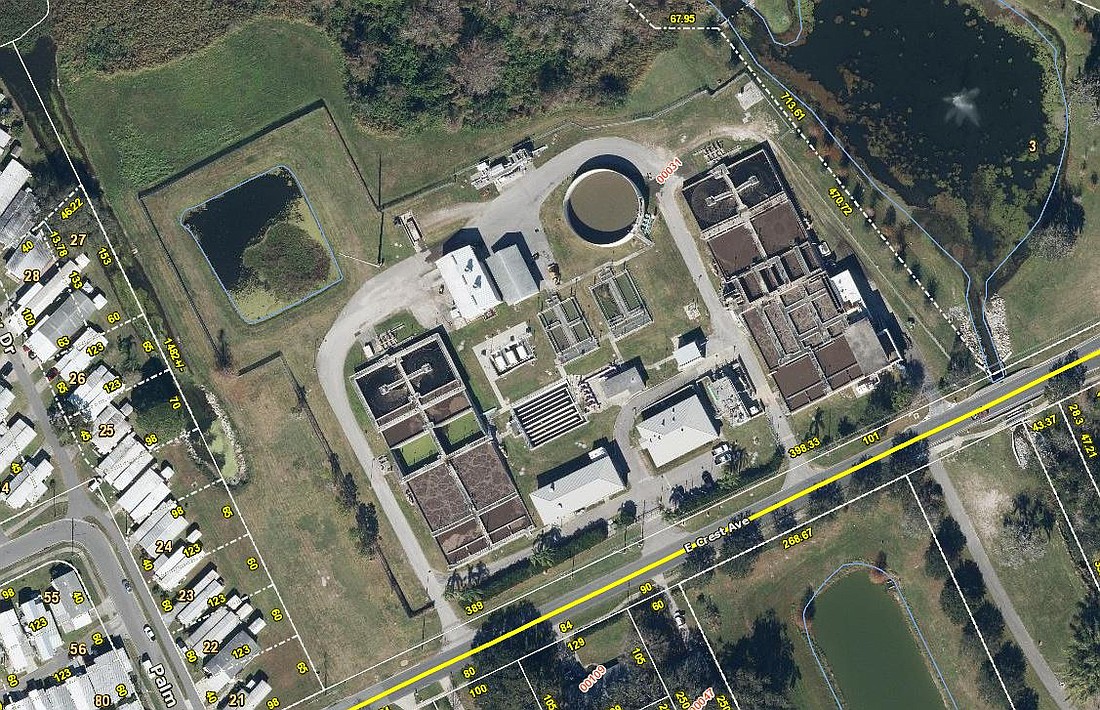- December 13, 2025
-
-
Loading

Loading

City staff presented an update on the estimated $100 million expansion of the Crest Avenue Wastewater Treatment Facility to the Winter Garden City Commission before its meeting Thursday, Feb. 8.
Staff said there is substantial need for the expansion of the facility because the city’s population has increased 36% since 2010. According to data, staff expects the city will exceed the current permitting capacity of 4.75 million gallons per day annual average daily flow by 2030.
Thus, staff is proposing the city expand the facility to 7.5 MGD.
EXPANSION EXPLAINED
The presentation included information on previous plant expansions, project background, cost estimates, project schedule, and funding and finance options.
Steve Pash, assistant city manager for public services, said staff estimates the original plant was built around 1950. Since then, the facility has undergone several expansions.
Staff said the flow to the plant averaged 3.5 MGD in 2023. That represents 74% of the facility’s permitted capacity.
Increased capacity also requires reclaimed water system expansions, including new transmission mains and storage options.
Pash said there have been many legislative pressures to increase effluent water quality and require treatment process upgrades.
State law requires the city to do the design and plan for the next expansion. The city is required to start planning when 50% of the permitted capacity is reached. Winter Garden is deep into the planning process and currently is at 74% capacity.
The expansion of the permitted treatment capacity from 4.75 to 7.5 MGD would meet the Florida Department of Environmental Protection Advanced Wastewater Treatment requirements.
City Engineer Jim Monahan said there are several proposed upgrades in the project to achieve the permitted capacity.
New covered headworks with odor control and influent screening will be provided, and a new 3.75 membrane bioreactor train would be constructed.
The existing 2.0 western train would be upgraded to a 3.75 membrane bioreactor train, and the existing 2.0 eastern train would be converted to equalization reject storage. A new reject would be constructed. The current electrical system would be upgraded and a new electrical system would be installed.
Staff’s goals for the project are to: utilize existing plant facilities/basins; contain the expansion within the facility’s existing property boundary; expand the reclaimed water system to match treatment capacity; and fund the project through multiple financial methods.
The project team will include Atkins Realis as the engineer, Wharton Smith as the construction manager, Raftelis as the rate and feasibility consultant, and PFM Financial Advisors as the funding consultant. City staff members from the public services and finance departments also will be assisting.
WHAT COMES NEXT?
The estimated total cost for the project, as of the 30% design phase in March 2023, would range from about $94,950,834 to $113,616,704.
Staff plans to fund the project through multiple financial methods, including utility bonds, State Revolving Fund loans, St. Johns River Water Management District and FDEP grants, and rate increases.
Currently, the city has acquired a planning SRF loan for $1,037,178 and a design SRF loan for $3,529,500. The project is on the inclusion list for a construction SRF loan for the first guaranteed max-price package.
During the construction process, the city will apply for a FDEP Water Quality Improvement Grant and a SJRWMD Cost Share Grant.
A 3D modeling of multiple facilities is underway, equipment selection and vendor coordination is ongoing, Veolia has been selected as the membrane system supplier and design is underway, and costing alternatives for multiple items are being evaluated by the construction manager.
The 90% design completion is estimated for October, and the final design contract documents are estimated for December.
City officials believe the new 7.5 MGD capacity is plenty to take the city through build-out. The only addition the expanded facility would require is standard maintenance such as renovations and improvements.
City Manager Jon C. Williams said the city is at a point in the process where money needs to start being spent on the project.
As early as the next commission meeting, staff will be bringing forward resolutions to start the process.